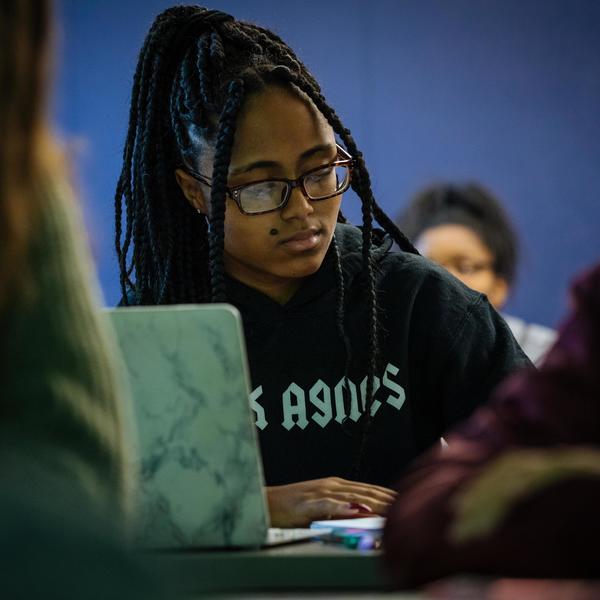This website uses cookies. Find out more in our Privacy Policy.
Learn to interpret the past through literature, language, history, art and material culture as a Classical Civilizations major.
The Classics program at Agnes Scott is at the heart of the college’s liberal arts program, educating students in the artes liberales (the “skills that liberate the mind”) and with the tools to implement those skills in a variety of disciplines and careers.
The classics curriculum at Agnes Scott is a carefully stepped approach that helps students learn and practice skills essential both for the evaluation of ancient Greece and Rome and their persistent influence on the world around us. Classics students learn to use a wide range of compelling textual and material remains and a variety of critical methodologies from a range of disciplines—anthropology, art history, history, literary studies, philosophy, political science, and sociology—to examine the cultures of ancient Greece and Rome.

The Classical Civilization major and minor focus on the study of Greece and Rome through the history, literature, material remains, art, and philosophical thought of the period and gain advanced language skills in either Greek or Latin. You'll learn:
The transferable skills gained from a classics major translate to a variety of other fields. These skills include the abilities to summarize, analyze, develop arguments, and defend one’s arguments in writing and speaking. The study of Greek and Latin trains the mind to understand the nuances of language and thought in other contexts and disciplines as well and lays the groundwork for original research both in terms of process and content.
The Classics program embraces Agnes Scott College's SUMMIT initiative primarily by making explicit what have long been key parts of its program—critical thinking, a global perspective across time and place, research skills, oral communication, and informational fluency. Our additional focus on effective teamwork and critical self-awareness make Classics an ideal setting for global learning and leadership development. Classics majors are strongly encouraged to participate in college-approved study-abroad programs when conditions permit. A special scholarship fund is available to support such classics-related travel.
Eta Sigma Phi is the national collegiate honor society for students in Latin or Greek classics courses. The purposes of the society are to develop and promote interest in classical studies among the students of colleges and universities, to promote closer relationships among students who are interested in classical study, including inter-campus relationships, and to stimulate interest in the history, art and literature of ancient Greece and Rome.
Classics provides an excellent starting point for students interested in areas such as law, medicine, education, creative writing, history, archaeology, art, philosophy, or linguistics, among many others.
Classics students learn to analyze a wide range of compelling textual and material remains using a variety of approaches-- anthropological, historical, and sociological methods, political theory, literary criticism and art history. Majors and minors also learn Greek and Latin with a rigor that requires close attention to detail, cross-referencing of sources, careful synthesis, and critical analysis of texts and contexts--all skills that serve them well in a wide range of fields.